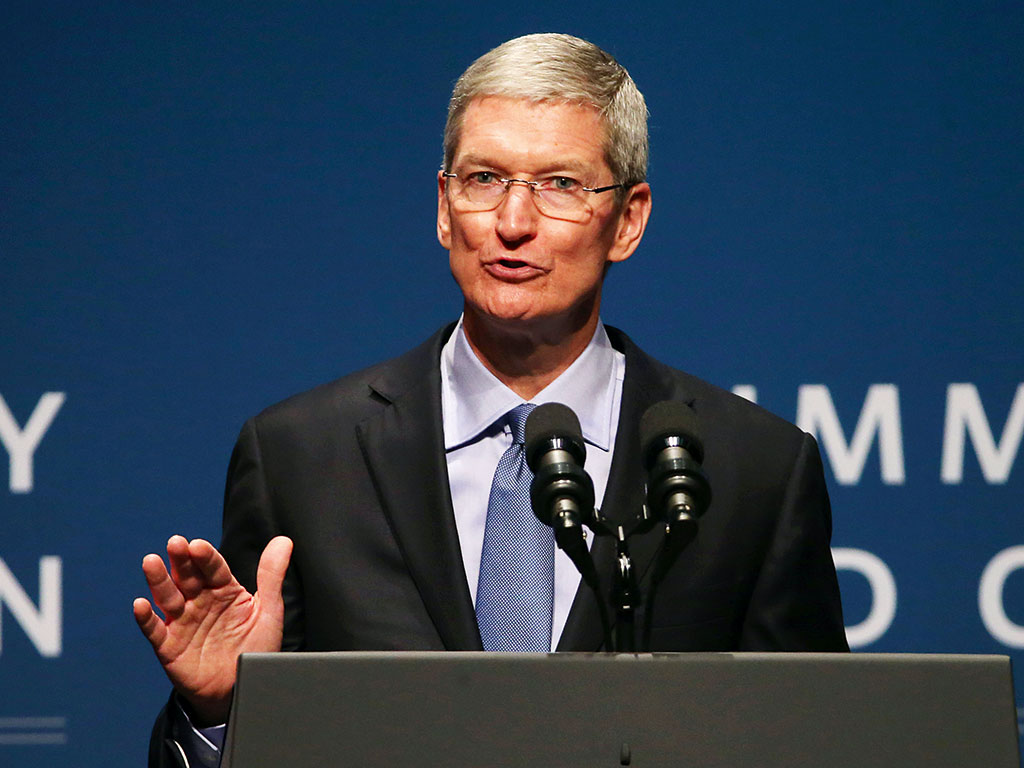Getting too personal? Marketeers trade in our data
More and more of our personal space is being invaded and sold online. Is it too late to turn the tide?

The numerous methods companies now have to collect personal data could see them charging customers different prices, as they will be able to ascertain who has more money to spend
Privacy is a basic right every person on the planet is entitled to. Although it is not as pressing as the right to food or shelter, privacy is an inalienable right nevertheless, it is still one of those values that constitute our notion of humanity. In contrast to other rights in today’s well informed and increasingly libertarian world, however, privacy is in a state of regression. The internet, despite the plethora of benefits it has brought mankind, has facilitated this attack.
As a result of the world’s transition to the web and the constant stream of information that is shared on social media, organisations are able to collect masses of personal data and create incredibly comprehensive databases for profit. This information is either used for the company’s own commercial purposes or sold on to data-hungry businesses. In some cases, it is even used by the state.
“The over-collection and misuse of personal data undermines our freedom of association”, says Julia Horwitz, Director of the Consumer Privacy Project at the Electronic Privacy Information Centre. “Our online social connections, participation in online debates, and our interests expressed through our online activities can now be used by the government and companies to make determinations about our ability to fly, to obtain a job, a clearance, or a credit card.” While the public is increasingly aware of such practices and the whittling away of their privacy, the increasingly sophisticated approach taken by information hoarders is already evolving and arguably irreversible.
Race to the bottom of your soul
Companies have always sought to collate information about their customers – learning about consumer preferences enables businesses to cater their products, target their sales and boost their profits. But the process itself for collecting data has changed dramatically over the last decade. It was once far more direct, involving the obvious act of acquiring permission: surveys were filled out, consent was requested and signatures were given. Gaining an insight into consumer behaviour has come a long way since then; protocol and courtesy have been undermined by covert and misleading tactics.
Prices can vary not only between groups of people, but depending on situation, time and the location of the consumer
Social networking platforms can now access individuals’ intimate details instantaneously, with great ease and at almost no cost. Large, influential companies such as Google and Yahoo offer ‘free’ services – such as email accounts, online drives and search engines – in exchange for personal information. Public records and internet purchases are also used to create a complete picture of an individual – enabling the 21st-century phenomenon of online targeted marketing. “In order to do this, internet firms engage advertising companies to act as the ‘data broker’ between the consumer-facing website and the advertising company”, explains Horwitz.
The surveillance of customers has become a multibillion-dollar industry, with such exponential growth permitted by a lack of regulation. Companies have full rein to comb a multitude of sources (many of which are available for free) in order to create comprehensive databases.
As it is now incredibly easy to scour the internet and gather private data about individuals – from their credit rating to medical prescriptions – data brokers are offering up an awful lot for surprisingly little. With more players in the game, rivals are constantly undercutting each other’s fees and pushing the market price further down, meaning the personal details of internet users are worth less and less. As a result, data brokers hunt for ever more intimate details of consumers in order to outperform each other.
The information buyers vary greatly. Within a relatively short period of time, it has become normal for insurance groups, energy firms and mobile phone providers to purchase databases from brokers in order to maximise the purchasing potential of their customers. “Consumer data reveals quite a bit about consumers’ latent demographics, characteristics, and tastes”, says Benjamin Shiller, Assistant Professor of Economics at Brandeis University. This information has become a powerful tool that is used to tailor marketing strategies and bolster profits.
That being said, there are those who have chosen to opt out of this growing trend, for the benefits do not always outweigh the public backlash if and when customers become aware of, and perturbed by, this Big Brother style of business.
Price discrimination
Personal data can be used to assess how much a person is willing to pay for something based on their history, consumer preferences and how desperate they are to make the purchase. This means prices can vary not only between groups of people, but depending on situation, time, and the location of the consumer.
“Price discrimination exists when consumers ultimately pay different prices for identical products, and those price differences are not due to different costs of servicing the consumers”, Shiller explains. “Technology enables real time pricing by allowing price automation and rapidly incorporating consumer data.”
The cumulative collation of information, ever-increasing levels of connectivity, and the Internet of Things could take price discrimination to an alarming level in a very short time. Within a few short years, a petrol station may be able to charge more if you are running on an empty tank, or a retailer could charge more for an item of clothing because they know you can afford it. The end goal in this scenario is to create a market of one: an extreme form of personalised marketing, which will have a considerable impact on the traditional balance of power between consumers and companies.
Supermarket loyalty cards and coupons, membership incentives, and paying over the odds for last minute travel are already normalising price discrimination in the consumer psyche. “Coupons are used because they less obviously reveal the fact that the firm is explicitly charging different consumers different prices – something the firm may want to hide”, says Shiller.
Yet, the need to hide differential pricing is diminishing as the practice becomes more common. Of course, there are obvious benefits in targeted marketing and price differentiation: many consumers enjoy preferential prices in exchange for their loyalty or advanced planning, while the convenience factor is considerable in a modern, hectic daily schedule.
Acts of freedom
As a result of pressure from lobby groups and a general backlash from the public, governments are beginning to show their support for privacy protection and creating relevant legislation. In June, the US Senate voted in favour of the USA Freedom Act, the most significant revision to surveillance reforms since the late 1970s. The passage of the act ends the controversial practice of collecting the phone records of US citizens in bulk. Following a six-month grace period, the act obliges telecommunication companies to assume responsibility for the phone records collection programme. This decision came at the same time as the expiration of the Patriot Act, bringing an end to the sweeping surveillance powers enjoyed by the National Security Agency (NSA), which were enacted by President George W Bush in 2001.
Bush’s propagandised War on Terror following 9/11 and the argument that the Patriot Act was necessary in order to prevent acts of terrorism was largely accepted for some time. It was only when former CIA employee and NSA contractor Edward Snowden revealed the Patriot Act was used to justify the mass surveillance of millions of innocent citizens, both in and outside the US, that light was shed on the practice and public outrage ensued. As a number of independent studies have since found, the NSA’s phone collection programme has made no impact on preventing terrorism – strengthening the case of reform lobbyists.
The passing of the Freedom Act and the expiration of the Patriot Act marked a significant point in the protection of civil liberties, but there is still a great deal of data being shared and sold – much of it without the knowledge of its owners.

Taking responsibility
Earlier this year, Tim Cook, Apple’s CEO and one of the most influential individuals in the tech world, spoke out against websites that provide convenience in exchange for personal data. “Some of the most prominent and successful companies have built their businesses by lulling their customers into complacency about their personal information”, he said during his speech at an event hosted by the Electronic Privacy Information Centre. “They’re gobbling up everything they can learn about you and trying to monetise it. We think that’s wrong”. With individuals such as Cook highlighting the need to address the problem, other organisations may be compelled to reverse their current data sharing practices. Yet, in order for real and lasting change to occur at this stage, legislation and a robust regulatory framework are crucial. Public demand and pressure from lobbyists and groups can demand such governmental action, as the Freedom Act illustrated.
That being said, it is reasonable for companies to collect information about their customers; this is a standard exercise in business and the cornerstone of marketing and advertising. It is also logical that, as methods for collecting such details have evolved with the online revolution, firms employ these tools to boost their profits in highly competitive markets and industries.
It is the responsibility of the individual to protect what they feel needs protecting. Some may choose to share information in exchange for preferential treatment, free services and greater convenience. There are others who may choose to opt out. But this is the key point in the process: having the option to choose one way or another.
To share or not to share should never be mandatory or perpetrated without knowledge, as has been the case in recent years. Moreover, unless people actively protect their online privacy and limit the information they share on the web, such details will continue to be used against them in more alarming ways and to their detriment. It is should be the challenge of companies to create such convenience and value that individuals choose to play the game. Either way, choice, along with privacy, is an irrefutable right that should be protected in every stratum of society.













